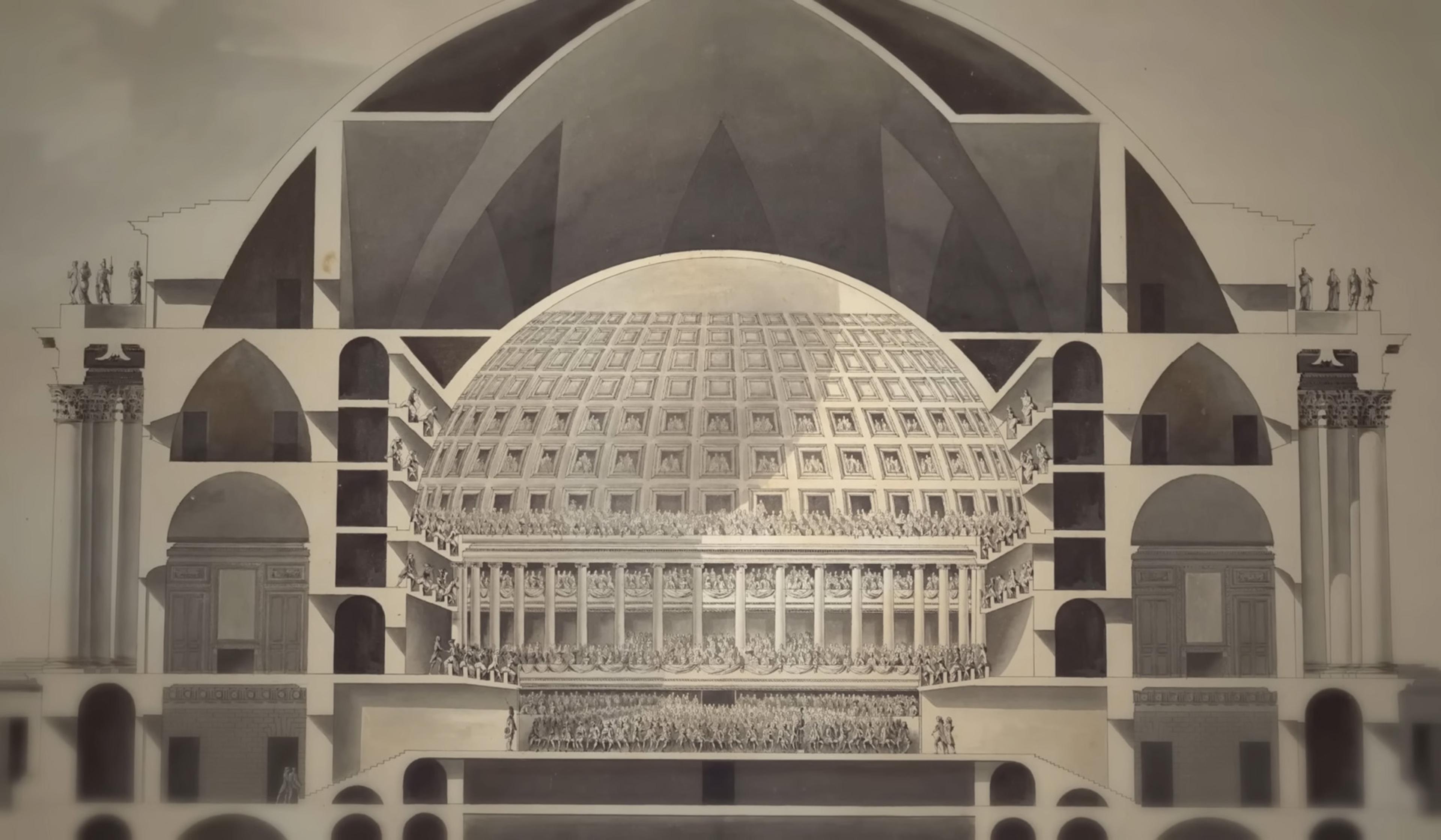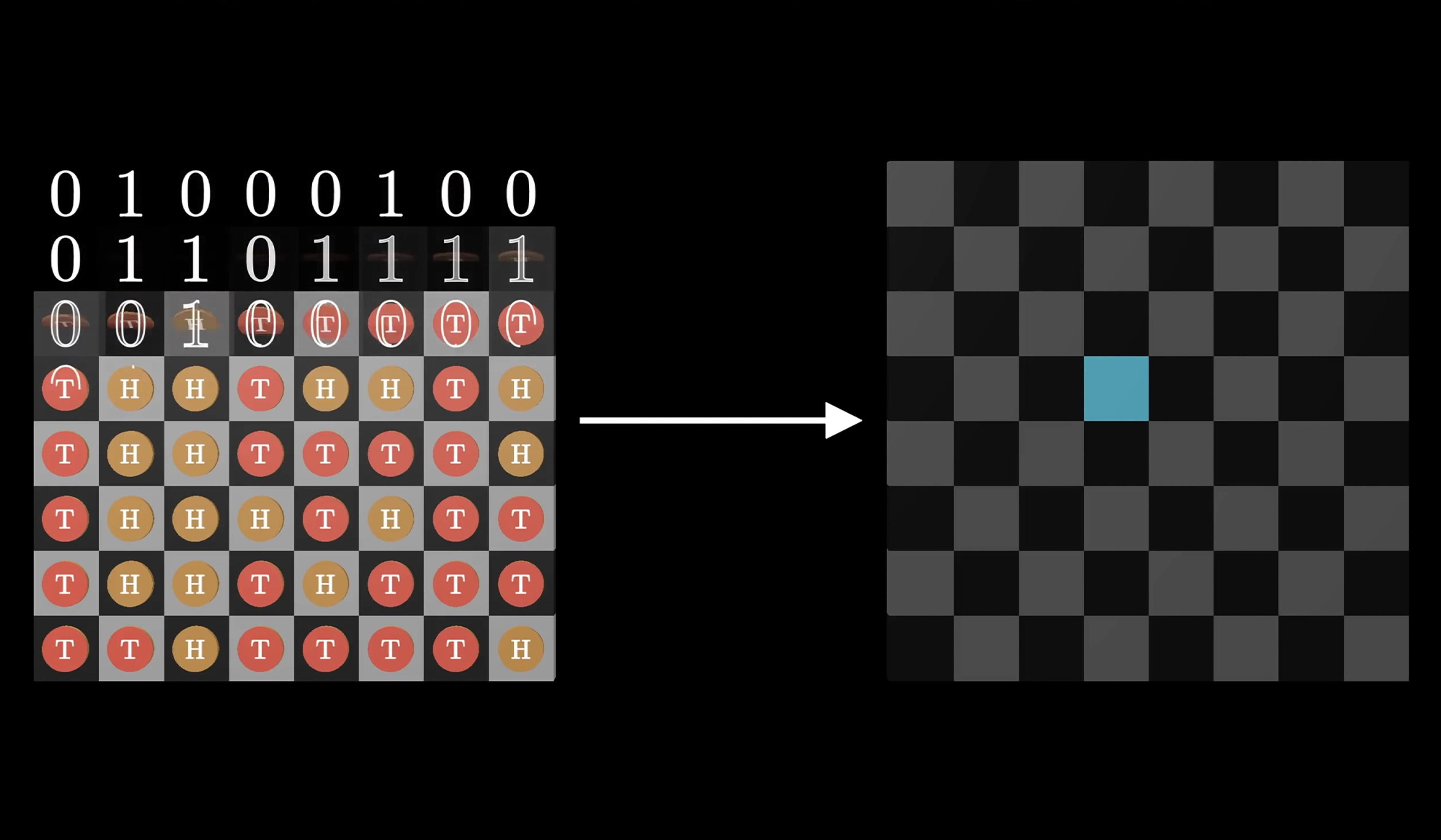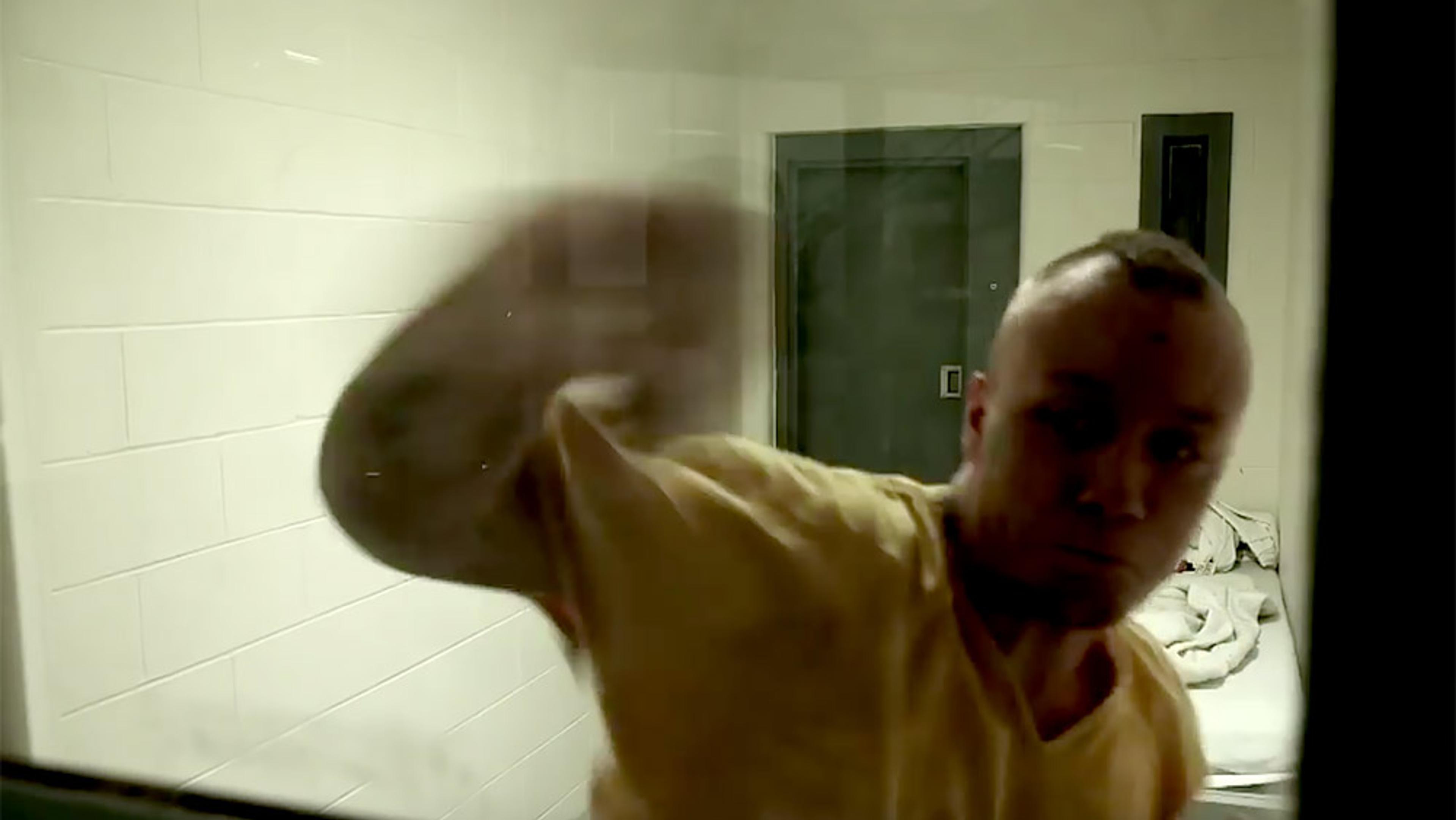The British philosopher and social theorist Jeremy Bentham was, for nearly two decades, consumed by how to construct the ideal building for institutional supervision – and in particular, a better prison. Published in 1791, Bentham’s plans for a ‘panopticon’ building (from the Greek for all-seeing) proposed what he believed to be a cheaper, more efficient and more humane alternative to the prisons of his time. While today the panopticon is more often thought of as a metaphor for power and surveillance than as a flawless prison layout, Bentham believed his proposal was highly practical, applicable ‘without exception, to all establishments whatsoever, in which … a number of persons are meant to be kept under inspection’. This short video from Myles Zhang, a PhD student specialising in US urban history at the University of Michigan, crafts a precise digital construction of a panopticon prison based on Bentham’s plans, with the design’s broader commentaries on punishment, power and surveillance sitting in the subtext. You can read more about Zhang’s project here.
Via Open Culture








